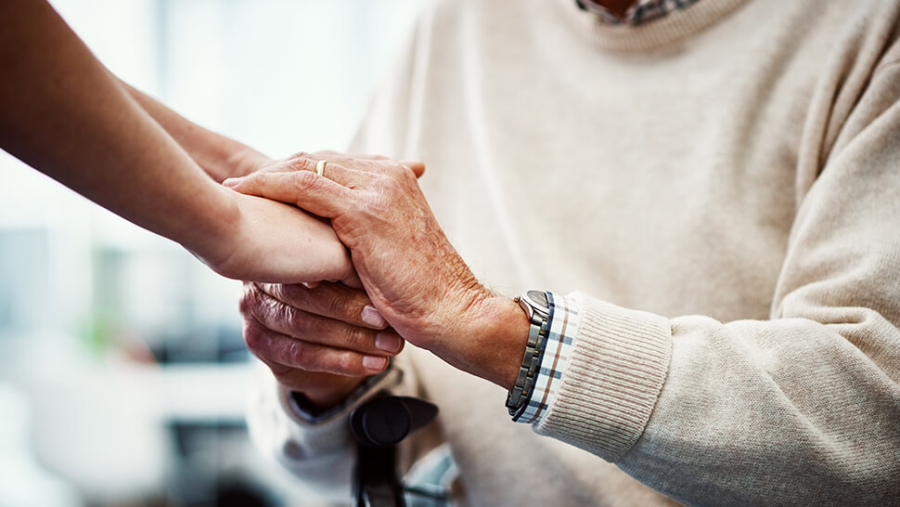

The House of Lords is horrified at the widespread detention of vulnerable people. There is no doubt that Deprivation of Liberty Safeguards (DoLS) have been in the news recently, and most of the coverage has been critical. It is therefore timely for care facilities and care providers to review their policies and their staff training. The legislation has not changed, but the understanding of where and when it is relevant has developed.
Section 4A (with Schedule A) of the Mental Capacity Act 2005 (MCA) authorises the Deprivation of Liberty of an individual who lacks capacity, while that person is in a care facility only if a registration process is followed. An application for DoLS registration can be made by anyone, but most applications are made by Care Homes or Social Services teams.
The process involves a great deal of form filling. After a restriction is imposed or identified, a formal report (form) needs to be sent to the DoLS team at the local authority. A process of assessment (of capacity, and circumstances that give rise to the need for the restriction) and consultation follow. As with all decisions arising under the MCA, the most critical consideration when deciding whether to register the DoLS is the best interests of the person whose liberty is to be restricted.
Each County Council appoints a person who is responsible for approving and maintaining a register of DoLS restrictions in their area. That person is also responsible for managing the registration process and there is often a close relationship (both in terms of proximity and personnel) between the DoLS registration team, and the Safeguarding team.
Overall, CQC is responsible for collating DoLS registration statistics and details nationally. To date, CQC has had difficulty in managing its primary responsibility of managing the standards of care provided in hospitals, care facilities, care providers and recently GP and Dental surgeries, and has certainly not provided any scrutiny of the operations of DoLS restrictions nationally. They have indicated this will change.
It is in this context that a number of recent cases have been heard by the Courts. A number of points of interest arise:
What is a Deprivation of Liberty? Sadly, little additional guidance has been given about this. Cases to date (both before and after the MCA) involve some form of restraint of the person ranging from preventing a person leaving a care home with spouse or family to live/stay with them to preventing someone going on holiday. This suggests the restrictions usually involve some kind of physical limitation, but I have known registered restrictions for locking doors, strapping someone to a bed or chair and preventing a specified person from visiting a care home
What is the role of a Health and Welfare Attorney? This has not been considered by the Court (probably because the MCA is clear) but it is a practical question that is asked. Can a person who is an attorney under a Health and Welfare LPA consent to a Deprivation of Liberty Safeguard, thereby avoiding the registration process? The answer to this question is ‘No’. The MCA specifically states “This Act does not authorise any person to deprive any other person of his liberty.”
DoLS process must be followed by all people imposing restrictions. Early cases highlighted the fact that some local authorities were not managing restrictions appropriately. Evidence to the House of Lords committee suggests that there is still widespread misunderstanding of the law and how it should be used.
DoLS restrictions must be limited in duration and do not oust the authority of the Court of Protection. Recent cases have highlighted that long term restrictions will not be lawful. Repeated renewals suggest an application to Court to decide on the issues of conflict or concern is appropriate, particularly where the movement out of a facility is being limited. It is arguable that the onus is on the local authority to make referrals to Court in these situations, since its responsibility includes maintaining the register, providing safeguarding services and has residual responsibility for welfare matters where there is no Health and Welfare LPA.
Assessment of any proposed DoLS registration is not a superficial process. The Courts have made it clear that full account must be taken of all relevant information and factors. These include concerns about real and perceived risks of harm to the restricted person, and reference needs to be made to evidential support for these concerns. The views of the restricted person are relevant, but account must be taken of the fact that the restricted person lacks capacity to make the decision – or the DoLS process is irrelevant in any event.
Physical restrictions that arise in a person’s own home are not subject to the DoLS registration process, but care providers may wish to bear in mind their safeguarding responsibilities. Care facilities need to show they have a robust and current understanding of the legislation and that they are vigilant for restrictions that might arise that ought to be registered. Ultimately, the decision as to whether a DoLS restriction is registerable is made by the DoLS registration team. If concerns about a vulnerable person’s safety remain, it is worth remembering that ‘Safeguarding’ is about preventing a vulnerable person from being abused and suffering harm. If the lack of a DoLS registration results in immediate risks of physical harm, the Safeguarding team have responsibilities. Care facilities need detailed records to show the grounds for concern and the steps taken to prevent risk.










